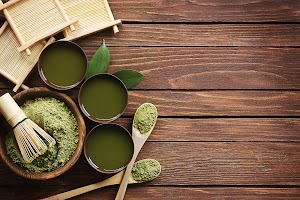Did you know that Medicinal Teas have been used as healing remedies since the second century BC? Although nobody is quite certain how it was discovered, Tea is still a favourite drink today and has many beneficial properties. It’s a fact that next to water, Tea is the most widely consumed beverage in the world with a whopping two-thirds of us drinking it. Here are some of the benefits of drinking medicinal tea:
Immune Boosting
There is evidence that green tea and chamomile tea can help strengthen the immune system. Even if the effect is minimal, you can’t go wrong, since both are loaded with powerful antioxidants unique to each tea.
Warming Teas to fight the cold
Certain teas simply make us feel good or please our taste buds. Others, though, are here to deliver us from the cold, actually helping our bodies fight the freeze, combat the germs floating around, and even battle the bulge. Warming teas, as we call them, are both warm in terms of flavor and in terms of their duty – to actually heat up our palettes and bodies. These include Peppermint, Ginger and Cinnamon based teas.
Improving Circulation
Proper blood circulation is essential to improve the ability to regulate body temperature, decrease heart wear and therefore reduce the chances of cardiovascular problems.
One of the organs most benefited by the consumption of tea is the heart, which receives the protection of the flavonoids. Varicose veins are another cause of poor circulation. Teas that can help improve circulation include Astralagus Root Tea, Ginger Tea, Ginko Biloba Tea and Hibiscus tea.
Eye Health
The study of U.S. adults found that people who drank hot tea on a daily basis were 74 percent less likely to have glaucoma compared to those who were not tea fans.
Special antioxidants called flavonoids in the tea leaves help protect the eyes against diseases such as cataracts, age-related macular degeneration and some types of glaucoma. One particular flavonoid known as gallocatechin collects in the retina and actually protects the retina against dangerous UV rays. The best teas for eye health include Rooibus, Green and Eyebright tea.
Skin health
Did you know that some teas also have skin benefits? It’s true! Tea, which is rich in polyphenols (molecules that have antioxidant properties), can help keep your skin hydrated, reverse the effects of UV damage, and reduce inflammation. Studies have shown that drinking green tea may actually help reduce your risk of skin cancer (although you still have to wear SPF 30 daily, of course).
Want to keep your skin looking youthful? You might want to give yerba maté tea, also known as maté, a sip. It’s loaded with antioxidants, which help prevent and repair skin damage caused by free radicals. The drink is made from the dried leaves of the yerba maté plant found in Central and South America and also contains high levels of caffeine.
Pain
Chronic inflammation occurs when the protective response goes into hyperdrive. This extends the body’s response to injury well past the time when it should have stopped. The immune system may switch on to continue the cycle, but sometimes inflammation occurs with no inciting injury or condition.
So how does anti-inflammatory tea help relieve the dangerous cycle of inflammation and pain? Some anti-inflammatory teas help to reduce the body’s production of cytokines, a chemical that causes inflammation. Others not only help limit cytokines, but also reduce the activity of cyclooxygenase enzymes that promote inflammation.
Green tea is one of the most-researched anti-inflammatory herbal teas available. While not a leaf, turmeric is a powerful anti-inflammatory root that has been used for thousands of years as a medicinal tea. Turmeric is earthy-tasting and harnesses the power of curcumin, a well-studied compound that fights inflammation. Rooibos tea is grown only in South Africa. Caffeine-free and with a sweet, barely tart flavor some compare to cranberries, rooibos contains two of the most powerful flavonoids found in anti-inflammatory tea: aspalathin and nothofagin.
Digestion
Stomach problems are a drag. They make it difficult to function and can cause a host of side effects that prevent you from tackling the day ahead. Fortunately, most minor digestive issues are easy to treat in a tasty way. Tea is backed by extensive research as an effective digestive aid. Whether you’re suffering from cramps and bloating or simply want to streamline digestion, these teas can help.
Ginger root tea has long been used to treat digestive ailments including nausea. The spicy taste of ginger stimulates the production of gastric juices and digestive enzymes that help break down food. As a result, ginger tea may help to speed up metabolism and ease digestive symptoms such as bloating and stomach cramps
Peppermint tea is a popular ingredient in herbal remedies for pain treatment. The tingly, fresh aroma and taste can help soothe stomach pain by decreasing inflammation. This tea is particularly effective at treating stomach pains caused by upset stomach, bloating, and excess gas. That’s because it contains menthol and menthone, which help to reduce inflammation and soothe the lining of the stomach and intestines
Licorice root tea is famous for treating a cough. It has also been used for centuries to treat digestive issues in traditional medicine in Asia. Licorice root may help to prevent and treat ulcers by increasing the production of mucin, a compound that lines the stomach and protects the stomach from excess stomach acid. The tea also contains flavonoids that may fight off H. pylori bacteria that cause ulcers.
Ooolong tea aids the digestive tract because it is mildly antiseptic, and helps to inhibit the growth of bad bacteria in the gut. In addition, it has an alkalizing effect that helps reduce acid reflux. Thai Lemongrass Oolong also contains licorice root, which helps to reduce inflammation and soothe ulcers. Lemongrass has been used extensively to treat gastrointestinal discomfort and is very soothing.
Enjoy !!!
Why not give medicinal teas a go? If you would like more information on how Naturopathy or how our Naturopath can help you click here .






